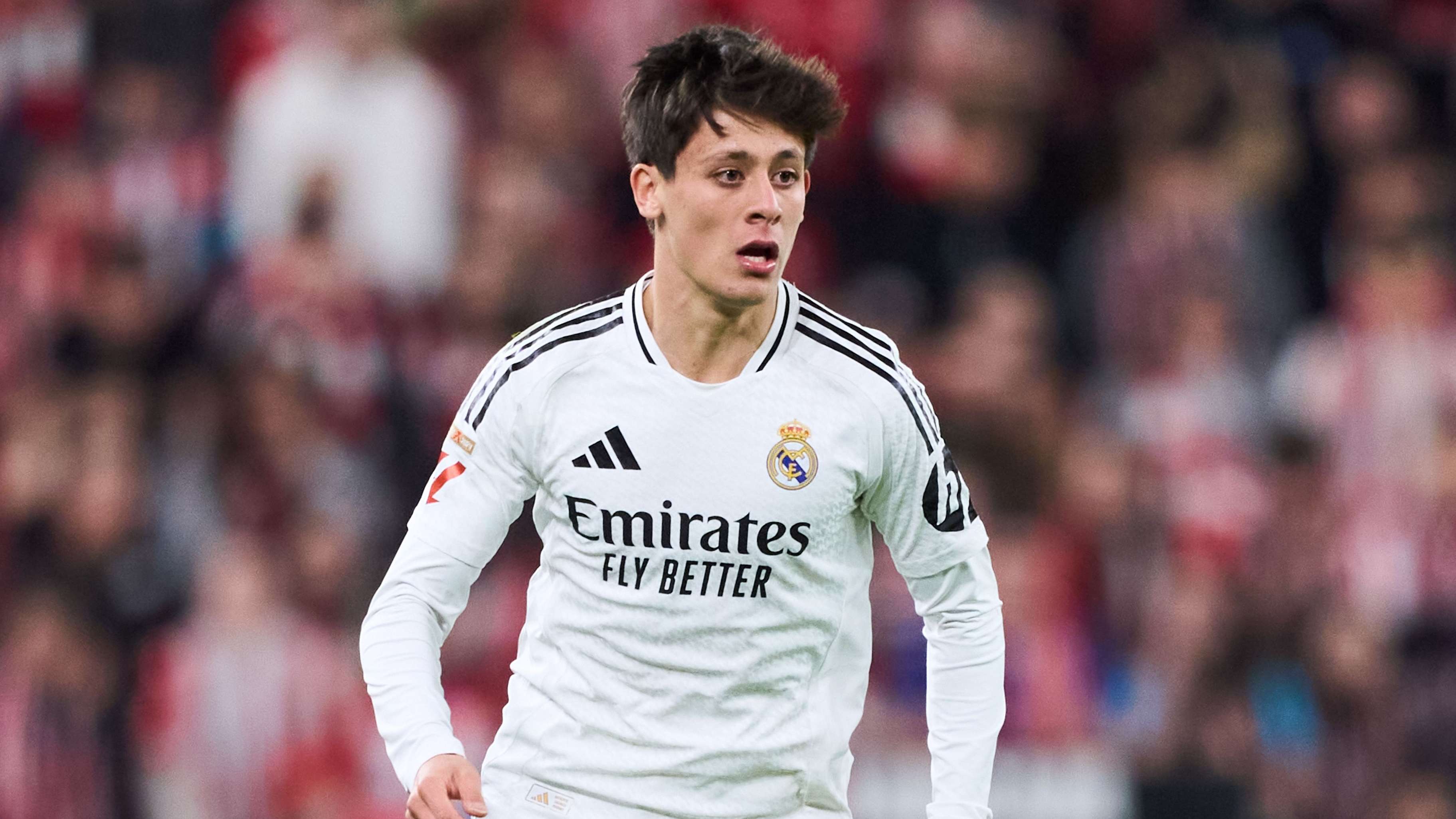The relationship between Carlo Ancelotti and young winger Arda Guler has become a focal point of discussion in the Bernabeu corridors, as reports suggest the Italian manager is increasingly dissatisfied with the Dutch talent’s attitude and professionalism. The 18-year-old, who joined Real Madrid from Feyenoord last summer for a reported €25 million fee, initially impressed both fans and coaching staff with his raw pace, technical ability, and willingness to learn. However, recent developments have raised questions about whether Guler possesses the right mentality to thrive at one of Europe’s most demanding clubs.
Ancelotti, known for his diplomatic approach and player management skills, rarely criticizes players publicly. His current concerns about Guler stem not from on-field performances but rather from perceived issues surrounding the teenager’s work ethic and conduct during training sessions. Sources within the club indicate that while Guler’s physical attributes remain undeniably promising, there are growing worries about his commitment levels and response to constructive feedback. These factors have reportedly frustrated the veteran coach, who places immense value on discipline and professional maturity in his squad members.
The situation has sparked renewed interest in Guler’s long-term future at Real Madrid, where competition for places is fierce even among youth prospects. The club’s philosophy under Florentino Pérez emphasizes nurturing young talents alongside experienced stars, but this approach requires players to demonstrate consistent progress and adaptability. While Guler’s arrival was celebrated as part of Real Madrid’s strategic investment in future talent, his development path appears more complicated than anticipated.
In interviews and press conferences, Ancelotti has consistently emphasized the importance of humility and dedication in achieving success at the highest level. He often references examples from his own playing career and those of legendary figures like Zinedine Zidane to illustrate how mental strength complements technical skill. This context makes his apparent disenchantment with Guler particularly noteworthy, suggesting that the issue extends beyond simple growing pains typical for young players adapting to top-tier football.
Guler’s journey to Real Madrid began with impressive displays at Feyenoord, where he established himself as one of Eredivisie’s brightest young talents despite his tender age. Scouts praised his direct running style, dribbling prowess, and ability to create scoring opportunities through sheer speed and unpredictability. However, making the transition from Dutch football to La Liga represents an entirely different challenge, requiring players to adjust their game significantly while maintaining peak physical condition and tactical awareness.
Real Madrid’s medical and fitness staff have reportedly expressed concerns about Guler’s body composition and conditioning levels, which appear inconsistent with the demands of modern elite football. While natural athleticism remains evident, there are indications that the player may struggle with aspects such as diet control, recovery routines, and overall preparation for matches. These elements form crucial components of Ancelotti’s training philosophy, which prioritizes holistic player development over individual brilliance alone.
Within the team dynamic, Guler faces stiff competition from established wingers like Rodrygo, Vinícius Júnior, and Federico Valverde, all of whom exemplify the work ethic and professionalism expected at Real Madrid. Their consistent performances and positive attitudes serve as benchmarks against which younger players are measured, creating additional pressure on Guler to elevate his standards. The presence of experienced professionals willing to mentor emerging talents further underscores the importance of embracing club culture and values.
Meanwhile, external observers note that Guler’s circumstances mirror broader trends affecting young players transitioning into high-pressure environments. The rapid rise of social media platforms and constant public scrutiny can complicate traditional adaptation processes, potentially influencing behavior patterns and focus areas. For someone still navigating adolescence while balancing professional responsibilities, maintaining perspective becomes increasingly challenging without proper guidance and support systems in place.
Club officials acknowledge the complexities involved in integrating young talents into senior squads, especially when expectations run high due to transfer fees and early promise shown. Pérez’s administration has historically demonstrated patience with promising youngsters, provided they show genuine effort toward improvement and alignment with organizational principles. Whether Guler can address identified deficiencies and rekindle trust remains uncertain at this stage, given prevailing sentiments within the coaching staff.
Speculation regarding potential moves away from Madrid has already surfaced, fueled partly by earlier rumors linking Guler with Premier League clubs interested in acquiring exciting attacking options. Such discussions typically intensify whenever player-manager relations come under scrutiny, regardless of actual intentions or plans. Should Ancelotti’s reservations persist, it wouldn’t be unprecedented for Real Madrid to explore alternative placements benefiting both parties involved.
Looking ahead, several key factors will determine Guler’s fate at the Santiago Bernabéu. Continued dialogue between player, coaches, and support staff aims to clarify expectations and identify specific areas requiring attention. Simultaneously, monitoring progress over coming months provides valuable insights into whether identified issues represent temporary setbacks or fundamental mismatches between personal traits and club requirements.
For now, uncertainty lingers around Arda Guler’s role within Real Madrid’s ambitious project. As Carlo Ancelotti navigates delicate personnel decisions shaping his squad’s competitive edge, the young Dutchman faces critical choices defining his trajectory in professional football. Success depends not merely on showcasing innate abilities but equally on embracing disciplines essential for sustained excellence at world-class levels. Only time will reveal whether Guler can reconcile these elements effectively or finds himself seeking opportunities elsewhere better suited to current stages of his development.



